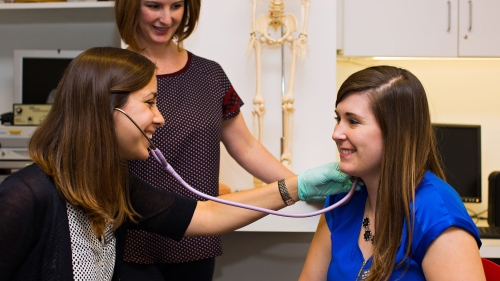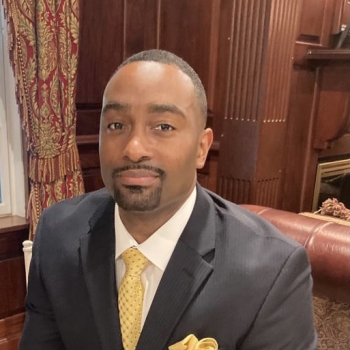

Dr. Castle is a winner of the NYU|Steinhardt Teaching Excellence Award, given to professors who demonstrate at least five years of teaching excellence in the classroom and outstanding contributions, student mentorship and service to the profession outside of the classroom.
He is a Clinical Assistant Professor in the department of Communicative Sciences and Disorders. He received a B.S. in Communication Studies from SUNY Oneonta, M.S. in Speech-Language Pathology from Columbia University and a Ph.D. in Hearing & Speech Sciences (Speech-Language Pathology) from Vanderbilt University. He is licensed and nationally certified by the American Speech-Language Hearing Association (ASHA) to practice speech-language pathology.
Dr. Castle is generally interested in how people learn and process information. His research interests are in the measurement of cognition and the development of language and literacy in typically developing individuals as well as those with autism spectrum disorder. In addition to being on the editorial board of the Journal of Autism and Developmental Disorders, he has conducted research studies on vocabulary and reading comprehension in typically developing and ASD populations and has received predoctoral translational research funding from the National Institutes of Health to investigate the relationship between pragmatic language, oral language comprehension and reading comprehension.
Clinically, Dr. Castle has treated individuals in early intervention (Birth to 3), school-age and adult populations across a variety of disorders. He has also served as an externship and clinical fellowship supervisor for graduate students earning state licensure and national certification.
Dr. Castle is a strong advocate for increasing the number of individuals from underrepresented populations in CSD. He has been a member of the Board of Directors for the National Black Association for Speech Language and Hearing (NBASLH) and has participated in numerous initiatives to mentor high school, undergraduate and graduate students and develop a pipeline into the field of CSD. He has been featured on many webinars and podcasts and is a trusted consultant and frequently invited speaker.
